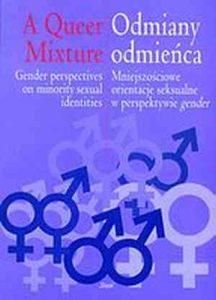2002
 Gothic has always been about paradoxes. It has transgressed boundaries and laughed in the face of tragedy, it has thrilled and inspired, and more than often it has confused us. Today this has not changed; on the contrary, with the growing tendency to question the dichotomy of things the Gothic ambiguity has become an attractive means of expression, especially when we begin to see it as a conscious choice rather than simply an inability to make up one’s mind. The following paper addresses the notion of sexual revolution at the turn of the millennium. It explores the concepts of “the third sex,” bisexuality and “switch” sado-masochism suggested as the possible answer to the conflicts on the grounds of sexuality. I want to argue that the movement towards the elimination of sexual differences does not necessarily have to be viewed in terms of a utopia. On the example of the Goth subculture, seen as one of the groups already living out the ideals of the on-going sexual revolution, I want to posit that the “thirdness” of groups like Goths may help eradicate sex-related phobias and promote recognition of the diversity of human sexuality.
Gothic has always been about paradoxes. It has transgressed boundaries and laughed in the face of tragedy, it has thrilled and inspired, and more than often it has confused us. Today this has not changed; on the contrary, with the growing tendency to question the dichotomy of things the Gothic ambiguity has become an attractive means of expression, especially when we begin to see it as a conscious choice rather than simply an inability to make up one’s mind. The following paper addresses the notion of sexual revolution at the turn of the millennium. It explores the concepts of “the third sex,” bisexuality and “switch” sado-masochism suggested as the possible answer to the conflicts on the grounds of sexuality. I want to argue that the movement towards the elimination of sexual differences does not necessarily have to be viewed in terms of a utopia. On the example of the Goth subculture, seen as one of the groups already living out the ideals of the on-going sexual revolution, I want to posit that the “thirdness” of groups like Goths may help eradicate sex-related phobias and promote recognition of the diversity of human sexuality.
